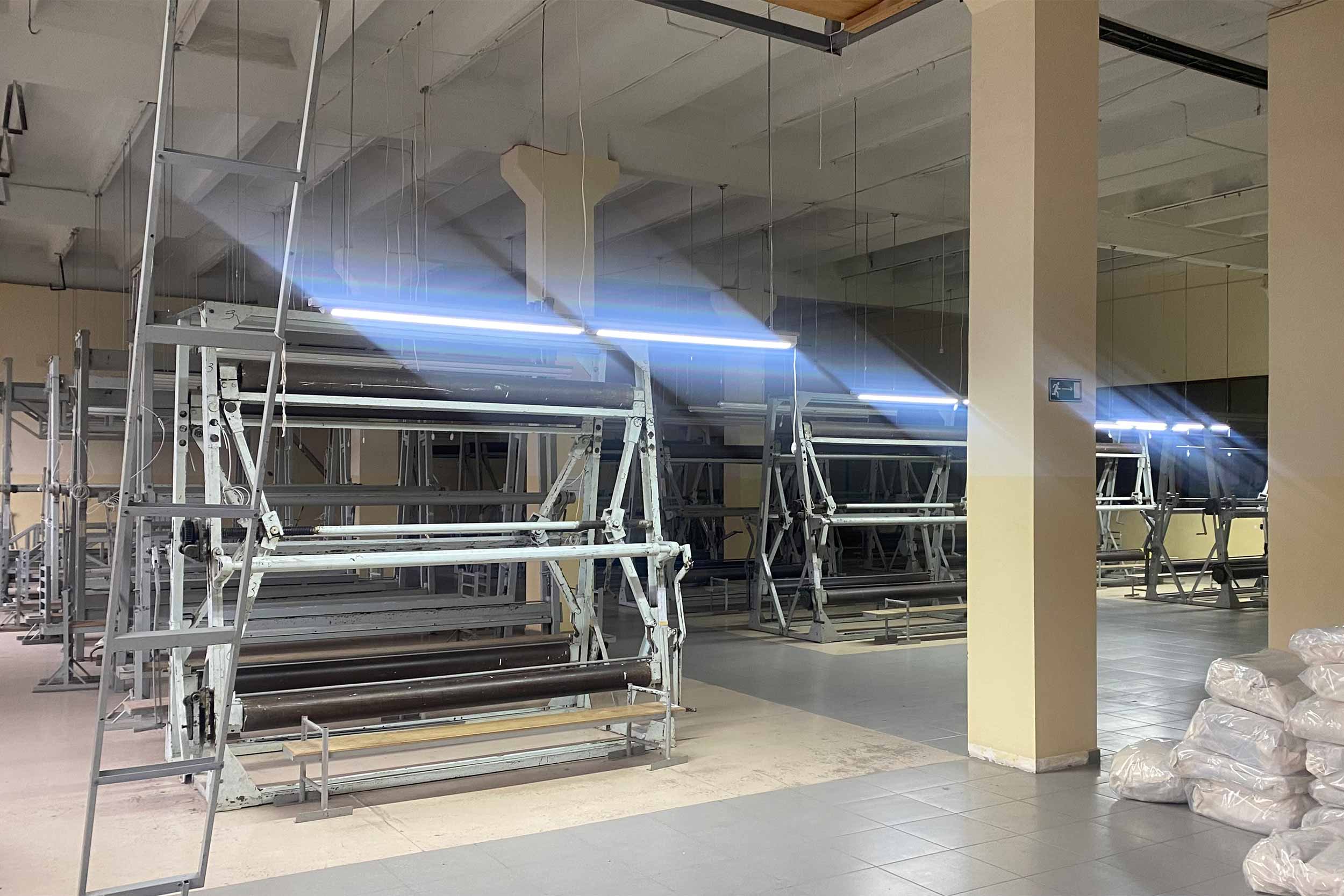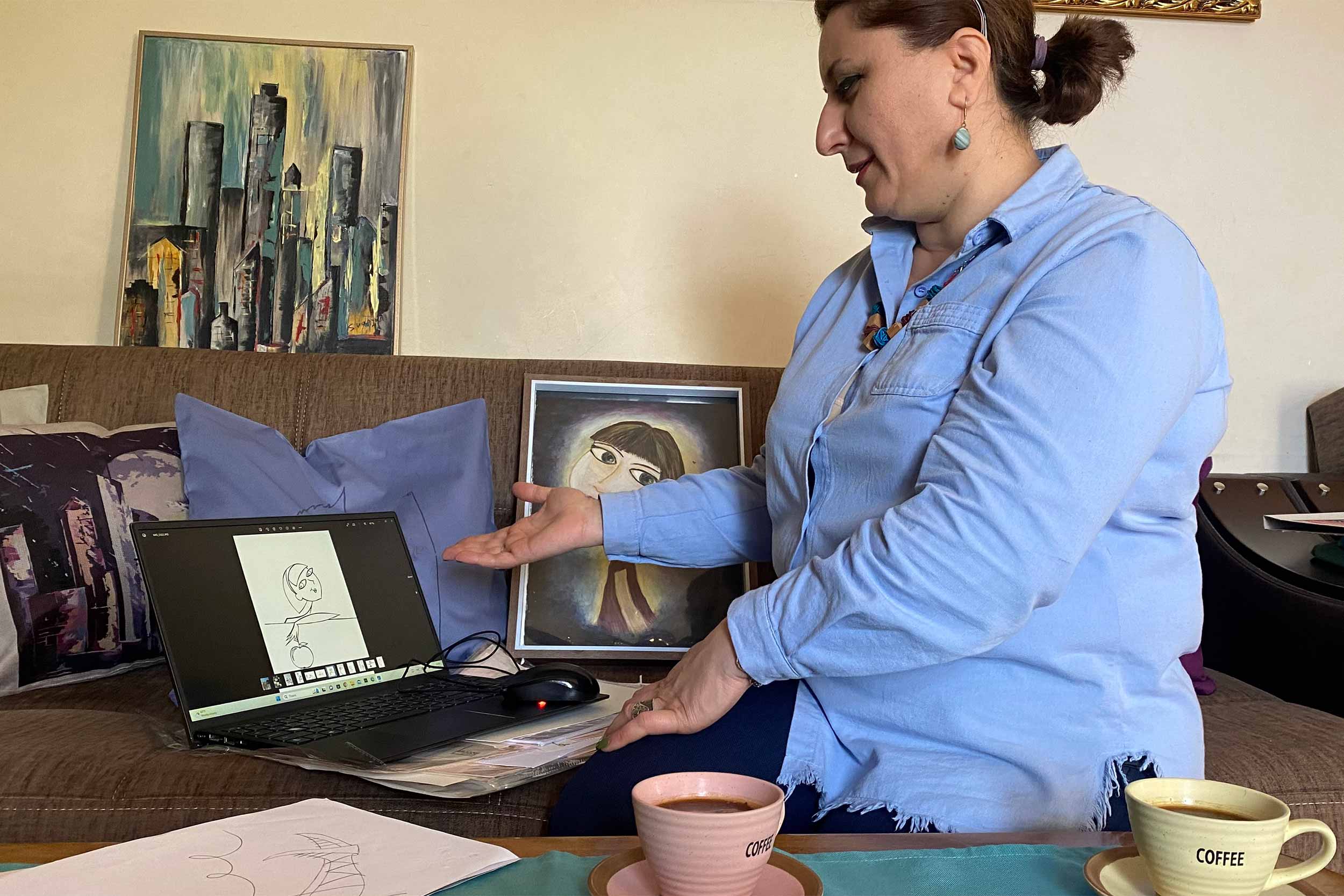Azerbaijan’s Blockade Paralyses Nagorny Karabakh
Economy is in freefall, with inflation soaring and unemployment on the rise.
Six months into the blockade that has isolated Nagorny Karabakh from the rest of the world, the large looms of the Artsakh Carpet workshop sit idle and silent.
“[It] has paralysed our business. The company's future is very unclear, and our 70 employees are left with no work to do,” said Sevak Khachatryan, director of the rug manufacturer which has operated in Stepanakert since 2013.
On December 12, 2022 a government-backed group of Azerbaijanis, who claimed to be co-activists protesting over Karabakh authorities’ illegal mining activities, blocked the Lachin corridor. This is the only road connecting Karabakh to Armenia and the rest of the world.
Artsakh Carpet continued to operate in the first month of the blockade, explained Khachatryan, but production gradually faded as the supply of yarns and dyes stopped. No transport was allowed in or out of the region, so sales also ceased.
Khachatryan and his weavers, designers and dyers are not alone: about 20 per cent of the region’s businesses stopped operating within weeks.
The blockade has crushed the region’s economy, which had not yet recovered from the impact of the Covid-19 pandemic. Official data reported that as of June 2, the economy suffered a loss of about 329 million US dollars, leading to cut the predicted annual gross domestic product (GDP) of 903 million dollars by 36 per cent.
“All branches of the economy have deviated from normal activities,” Norayr Avanesyan, Karabakh’s first deputy minister of economy and finance, told IWPR via email. He added that mining work has been completely suspended and large-scale agricultural activities stopped due to severe shortages or total lack of seeds, fertilizers, pesticides, fuel and spare parts.
In the first three months of 2023, the volume of construction fell by nearly 84 per cent compared to last year: work on roads, water lines and the irrigation systems of thousands of hectares of land froze. Foreign trade turnover has been disrupted and inflation spiraled due to lack of supply.
As companies stopped operating, unemployment has ballooned: almost 11,000 people are now officially unemployed, more than half in the private sector.
"I am looking forward to going back to work again…it is difficult to make ends meet with the rising prices for essential goods,” Gita Hambardzumyan, one of the weavers Artsakh Carpets had to lay off, told IWPR.

CUT TO THE BONE
On April 23, Azerbaijan set up a checkpoint on the Lachin corridor, which the ceasefire agreement of November 9, 2020 stipulated would remain under the control of Russian peacekeepers. Azerbaijani police officers and soldiers have now replaced eco-activists.
The traffic on the road remains below the bare minimum; private vehicles cannot travel and only Russian peacekeepers and the International Committee of the Red Cross (ICRC) are allowed to transit. Russians have been providing humanitarian assistance, including food supplies, and ICRC has secured vital medical aid and accompanied patients to specialised centres in Armenia.
On June 2, the authorities’ regular update reported that in the 173 days of the blockade 5,199 tonnes of essential goods entered the region instead of the 69,200 tonnes of the pre-block period.
Authorities have introduced a number of measures to curb inflation, contain the challenges of food shortages and mitigate the socio-economic consequences of the blockade.
It has initiated a voucher system for essential goods and introduced financial support to people who have lost their jobs as well as individuals and children from low-income groups. It also publishes regularly the permissible sales prices of essential goods; violators are fined.
The dire shortage of some products has been feeding a black market: fresh potatoes for example can be sold between 1,500 and 2,200 drams per kilogramme (about three, 75 and 5.5 dollars) versus 300 - 500 drams (0.75 and 1.3 dollars) in Yerevan. The price of cheese imported from Goris, the Armenian city closest to Stepanakert, has increased by about 20 per cent.
The price of bread is one of the few that has remained stable because flour has thus far not been imported - but wheat supplies are running low.
Authorities have removed limits on cash withdrawals but ATMs are often empty and frequent power outages disrupt their operations. Since January 9, gas supplies have been regularly interrupted.

Srbuhi Vanyan finds the long queues challenging, but not only for the struggle to access basic products.
“We seem to find ourselves at the lowest level of human needs. My customers are mostly women, who need to be close to art, but today they have to think mainly about basic needs,’’ the 43-year-old radio host-turned-artist told IWPR.
Vanyan took up painting after the 2020 war crushed her dream of setting up a guesthouse: she and her husband started renovating their house in September 2020, a few days before the war broke out. Min Tagun Tegh, meaning “a hidden place” in Armenian, never opened.
“On the one hand, war hinders the opportunity to develop, but on the other, it inspires creativity and resourcefulness,”she said, displaying sketches that she turned into craftwork for sale featuring the local dialect and folklore motifs.
That alternative has also disappeared as she now has neither the material nor the customers for her crafts.
“During your whole life, you set goals, work hard, create, and then there’s a war and now the blockade, which create monumental challenges that require doing the near-impossible to overcome them. It’s like trying to wring wood from a stone,” she said, referring to an old saying.
Vanyan has not seen her husband and her eldest daughter since December as they both happened to be in Yerevan when the blockade started.
She is not alone: according to Karabakh’s authorities, around 3,900 people, including 550 children, have been separated from their homes as a result of the blockade, although some families managed to be reunited with the mediation of ICRC and the Russian peacekeepers.
“I just want to have the opportunity to live together with my family, to create and move freely, but also to preserve our identity in our homeland, in our hidden place,” Vanyan concluded.
This publication was prepared under the "Amplify, Verify, Engage (AVE) Project" implemented with the financial support of the Ministry of Foreign Affairs, Norway.
